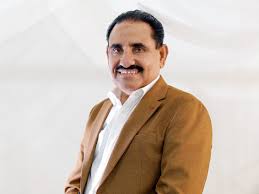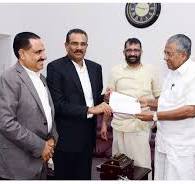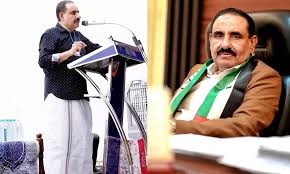In an exclusive conversation, Zainul Abideen, newly appointed Vice President of the Indian Union Muslim League (IUML) National Committee, reflects on his journey with the party, its enduring legacy, and the role it must play in today’s political climate.
Q1. Congratulations on your appointment. How do you see this recognition?
I feel deeply honored by this responsibility. I thank our respected leaders – Panakkad Syed Sadhik Ali Shihab Thangal, Prof. K.M. Kader Mohideen Sahib, and P.K. Kunjalikkutty Sahib – for their trust in me.
My association with the IUML goes back to my school days with the MSF, followed by years of active work with KMCC during my time abroad. For me, this is more than just a position – it is a lifelong commitment to uphold the IUML’s values and to serve the community with sincerity, especially in these challenging times.
The IUML has always understood the hopes, struggles, and aspirations of Indian Muslims, and I see my role as a way to keep strengthening that bond.

Q2. The IUML has a long history. How do you see its journey and relevance today?
The IUML was born in 1948, after partition, thanks to the vision of leaders like Quaide Millath Mohamed Ismail Sahib and K.M. Seethi Sahib. They rebuilt the League in a way that honored India’s democratic and secular spirit.
From just two MPs in its early years, the IUML steadily grew in influence. Leaders such as Ebrahim Sulaiman Sait and G.M. Banatwala made their mark in Parliament, consistently defending the rights of Indian Muslims with dignity.
While our strongest base remains in Kerala, we have expanded across the country. Leaders like the late E. Ahamed Sahib took the IUML’s voice to the world, representing India at the UN 27 times. Today, under the leadership of Prof. Kader Moideen Sahib, P.K. Kunjalikkutty Sahib, and Abdul Wahab Sahib, we continue to uphold secular values in an era when they are under threat.

Q3. How do you see the current socio-political situation for minorities?
The atmosphere today is challenging for minorities, especially Muslims. Since 2014, the growing influence of Hindutva ideology has impacted India’s democratic and secular balance.
The IUML has strongly opposed measures like the Waqf Amendment Bill, NRC, and the policies during the Delhi protests. Even with only a small presence in Parliament – three MPs in the Lok Sabha and two in the Rajya Sabha – we have never hesitated to speak up on sensitive issues.
On August 24, we will open our new central office in New Delhi. This will be a dedicated hub for national engagement, where Indian Muslims can bring forward their concerns and aspirations.

Q4. What’s next for the IUML nationally?
We are actively building our presence beyond Kerala. State-level committees are coming up in West Bengal, Bihar, Uttar Pradesh, and other states, focusing on local issues and solutions.
Our mission is to be more than just a voice of criticism – we aim to lead through education, legal aid, social development, and political empowerment. Guided by the patience and vision of leaders like Prof. Kader Moideen Sahib, we draw inspiration from values deeply rooted in our Sufi heritage.
As I take on this role, my priority is clear: to represent the voiceless, work with integrity, and keep IUML close to the people it serves.











